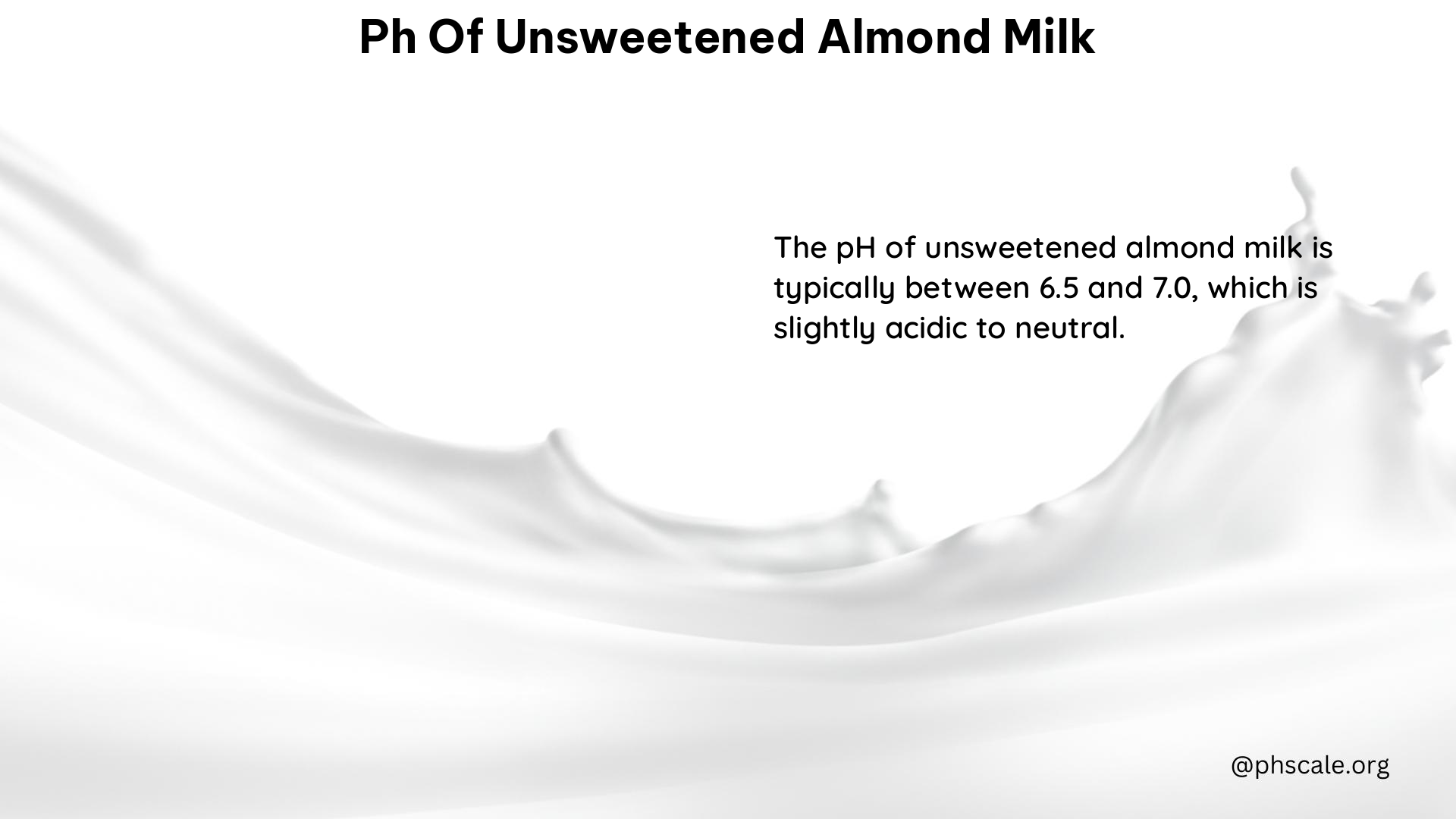The pH of unsweetened almond milk typically ranges from 6.5 to 8.0, with some variations depending on factors such as the quality of almonds, water source, processing methods, and additives or fortifications present. This slightly alkaline pH can have beneficial effects on digestive health, potentially helping to neutralize excess stomach acid and offering relief to individuals with acid reflux or heartburn.
Factors Influencing pH Level
The pH of almond milk can be influenced by several factors:
-
Almond Quality: The quality of the almonds used, including factors like the region they are grown in and their processing methods, can impact the final pH of the almond milk.
-
Water Source: The pH of the water used in the production of almond milk can also affect the overall pH of the product, as water pH can differ regionally and depending on the source.
-
Processing Methods: The methods used to process the almonds and create the milk can also influence the pH level, with some methods potentially introducing acidic or alkaline compounds.
-
Additives or Fortifications: Any additives or fortifications present in the almond milk, such as calcium or vitamins, can also impact the pH level.
Adjusting pH Level

For those who make their own almond milk at home, it is possible to adjust the pH level using acidic ingredients like lemon juice or apple cider vinegar. These ingredients can help lower the overall pH, making the milk slightly more acidic. However, it is crucial to use these ingredients in moderation to avoid significantly altering the taste of the milk.
Health Implications
The pH level of almond milk can have implications for digestive and bone health:
- Digestive Health: The slightly alkaline pH of unsweetened almond milk may help neutralize excess stomach acid, offering relief to individuals with acid reflux or heartburn.
- Bone Health: Almond milk contains calcium, which is critical for maintaining healthy bones and preventing conditions like osteoporosis.
Contaminants and Chemicals
Some common contaminants and chemicals that may be present in almond milk include:
- Pesticide Residues: Depending on the source of the almonds, there may be residues of pesticides used in the growing process.
- Heavy Metals: Almond milk may contain trace amounts of heavy metals such as lead, mercury, or arsenic, which can be present in the water or soil used in production.
- Additives and Preservatives: Some commercial almond milks may contain additives or preservatives to extend shelf life or enhance flavor, which can impact the pH level and overall nutritional content.
Solutions and Alternatives
To minimize exposure to contaminants and chemicals, consider the following:
- Choose Organic or Locally Sourced Almonds: Opting for organic or locally sourced almonds can reduce the risk of pesticide residues and other contaminants.
- Select Unsweetened and Unflavored Almond Milk: Avoiding flavored or sweetened almond milks can help minimize the presence of additives and preservatives.
- Make Your Own Almond Milk: By making your own almond milk at home, you can control the quality of the almonds and the processing methods used, ensuring a cleaner and more natural product.
By understanding the pH of unsweetened almond milk and the factors that influence it, you can make informed choices to support your digestive and overall health.
References
- Analysis of the Cariogenic Potential of Various Almond Milk Beverages. (2017). NCBI. https://www.ncbi.nlm.nih.gov/pmc/articles/PMC5828958/
- Analysis of the Cariogenic Potential of Various Almond Milk Beverages. (2017). PubMed. https://pubmed.ncbi.nlm.nih.gov/29241218/
- Understanding the pH Level of Almond Milk. (n.d.). Casa de Sante. https://casadesante.com/en-eu/blogs/milk-alternatives/understanding-the-ph-level-of-almond-milk
- The pH of Milk and Plant-Based Alternatives: Effects on the Body. (2018). Healthline. https://www.healthline.com/health/ph-of-milk
- Some Almond Milks Are More Basic than Others. (2023). Reddit. https://www.reddit.com/r/acidreflux/comments/114xo84/some_almond_milks_are_more_basic_than_others/.
